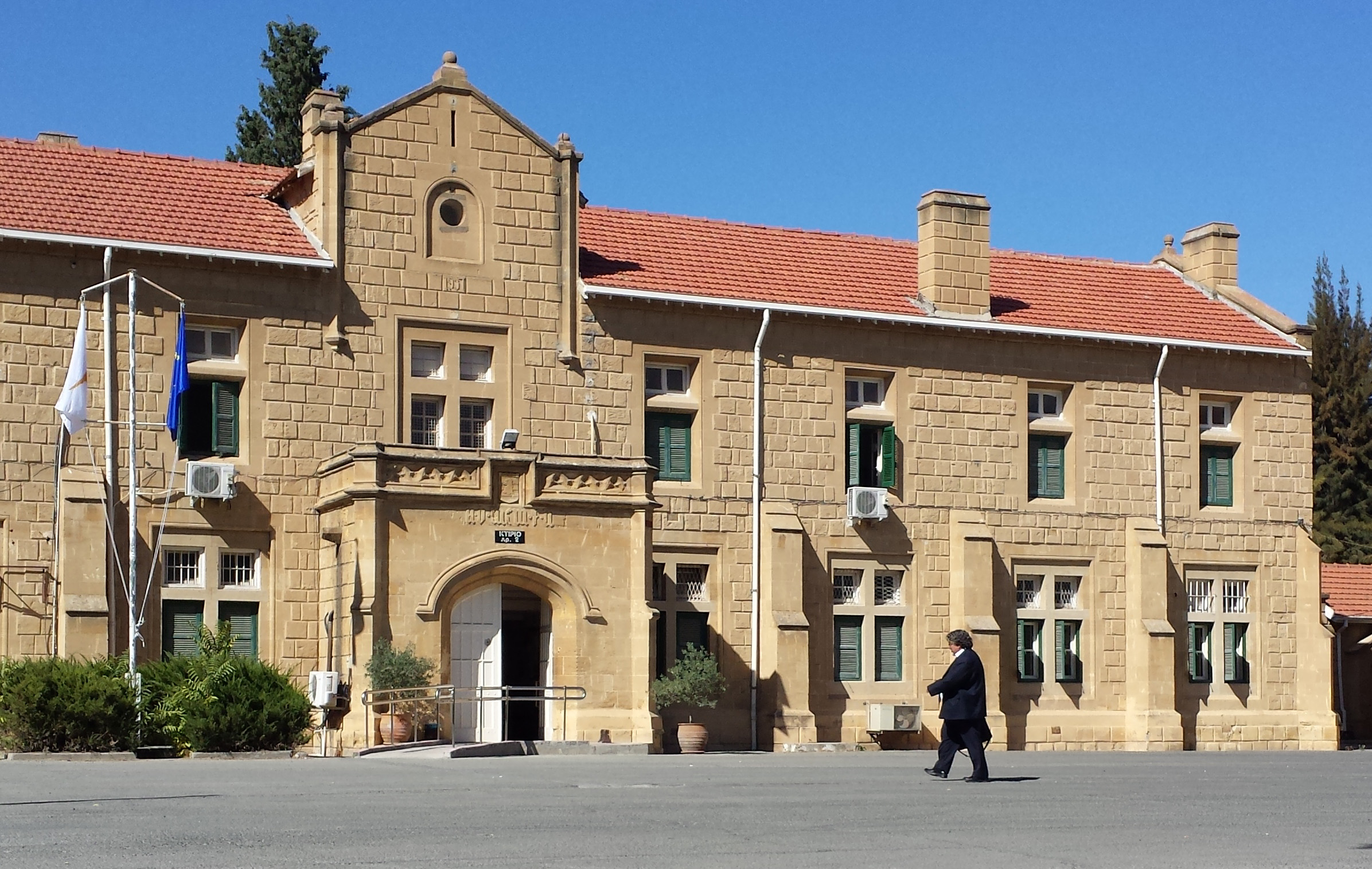The 49-year-old German woman who stands accused of having sold Greek Cypriot property in the north on Friday told the Nicosia criminal court about the flight from Germany to Cyprus she spent with Elam MEP Geadis Geadi which ended with her being arrested in July last year.
Friday’s hearing formed part of the “trial within a trial” over the circumstances surrounding her arrest, with the woman’s lawyers having argued that the manner in which she was arrested, as well as the seizure of her luggage and the search of her electronic devices, was illegal
They said the sequence of events violated articles of the Republic of Cyprus’ constitution and the European Convention on Human Rights.
In court on Friday, the translator who spoke on the telephone to the German woman after her arrest was called as a witness.
She told the court that she had received a telephone call from the police on the day of the woman’s arrest and translated from Greek to German what the police officer on the phone had told her.
This, she said, was to tell the German woman that she was under arrest and to inform her of a document with which she would give consent for the search of her luggage, and her right to either give consent or not sign the document.
Prosecution lawyer Anna Mattheou then asked the translator to translate some words which were on the form from German to Greek, with defence lawyer Sotiris Argyrou objecting, saying that such a question was “outside the framework of the trial within a trial”.
He then told the court that the witness had lied to the court about the time at which her conversation with the defendant take place, and that the translator had told the defendant at the time that if she did not sign the form, she would not be able to leave. The witness denied this.
Then, Argyrou called the defendant as a witness, and she told the court about the flight to Cyprus which led to her arrest.
She told the court she had conversations “lasting two or three minutes” with Elam MEP Geadis Geadi on the plane, and that these conversations were “limited” because she does not speak English well.
She said she had told him that she is a real estate agent in Germany, that she was travelling to Cyprus for a holiday and to celebrate her birthday, and that she had friends who lived in the north.
In addition, she told the court that Geadi “probably did not realise” that she was travelling to the north as she was telling him about destinations elsewhere on the island.
She added that Geadi had “spent most of the time working on his laptop”, that she had seen him “come from economy class to business class”, and that it “made an impression” on her that when he had found out that the seat between them was empty, he had brought a friend to sit in that seat without asking her.
Of the circumstances surrounding her arrest and the search of her luggage, she said that she initially did not know that she had the right to request a translator and a lawyer, and that the translator she had spoken to on the telephone had told her during a “very brief conversation” that if she signed the form, she could leave.
In addition, she said, there were “some words and sentences” on the form which were not written by her, and which were not in her handwriting.
She added that when she was taken to a police station, she was not provided with a translator, that she did not understand everything the police were telling her in English, and that she was not even allowed to communicate with her travel companions after being arrested.
The court set the next hearing of the case for June 18, with the prosecution set to cross-examine the defendant. Further hearings have been scheduled for June 20, July 7, and July 9.
The defence told the court it intends to call two more witnesses as part of the “trial within a trial”.
At the end of the hearing, the defendant asked the court “who will take responsibility” for the “deterioration” of her health since her arrest last July, given that she has not been provided with all the medicine which she requires while incarcerated.
Judge Nikolas Georgiades told her that the court is “not competent to examine medical issues” and that she should discuss the matter with her lawyer.







Click here to change your cookie preferences